Deworming is the process of ridding the pet's body of parasites, as well as the prevention of their development. Worming is necessary to maintain the health of the cat.
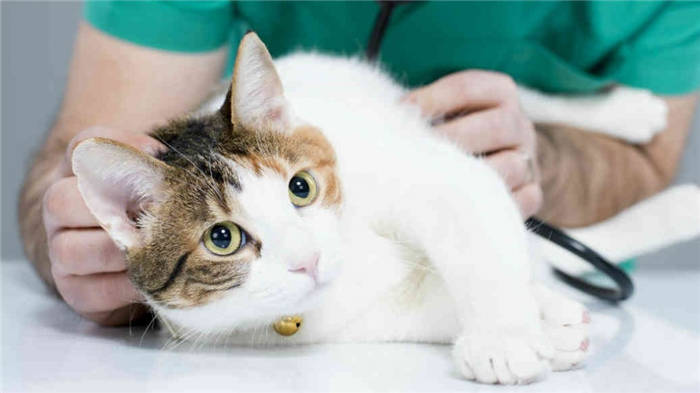
- Should we worm the house (not walking) cat?
- But the fact is that many people who do not fit this description consider themselves exceptionally clean. And they can't understand why they need to treat their shoes thoroughly, if they don't:
- The best remedies for roundworms
- Drugs for tapeworms and suckers
- Deworming
- What pill is given to a cat to anthelmintics
- Contraindications for deworming
- Anthelminthic drugs AVZ
- How to avoid contracting worms
- Cat Deworming Plan
- Suspensions
- Tablets
- AVZ worming preparations for kittens
- Anthelmintic suspensions
- Tablets
- Drops on the withers
- When should the first deworming be done?
- What happens if you do not get rid of worms?
- Cat diarrhea after worming
- Can deworming harm
- Symptoms, causes and prevention of worm infection
Should we worm the house (not walking) cat?
Of course, we are talking about prophylactic de-worming. If you, God forbid, saw something alive in the cat's feces, the algorithm of actions is simple and clear.
Namely: take a clean bowl, fill it with suspicious cat feces and take it to the vet. Why?
To quickly and with minimal harm rid your pet of parasites, you need them, the parasites, Identify them . . This can only be done in a laboratory. And after the "identification" of helminthes the veterinarian will prescribe treatment.
But there is an opinion that the house (even 100% house) cat should be wormed REGULARLY – at least twice a year.
And why should a responsible, loving cat lover consider the advisability of the procedure? If the vet advises it, then it is necessary. And it's only five minutes – catch, open the mouth, pour the medication. That's all, the enemy will not pass!
But the fact that antihelmintic drugs – not drugs in the usual sense (do not improve any function of the body), and poison.
So they (drugs) are toxic for the cat itself. That's why you should very accurately weigh the pros and cons: whether or not the risk of infection outweighs outweighs the harm of the procedure?
Of course, the main criterion for assessing the RISK will be the cleanliness of the house. That is, if you don't come into contact with potential sources of infection: animals in general and street animals in particular, you treat street shoes right after returning home, you wash the house floor every day – congratulations, your pet is lucky and the risk of getting worms is negligible.
But the fact is that many people who do not fit this description consider themselves exceptionally clean. And they can't understand why they need to treat their shoes thoroughly, if they don't:
And in the homes of even very clean owners at the front door there are special mats, sometimes very nice in design. Of course, the owners clean them regularly. And they have no idea that they cherish and nurture them. most the most dangerous thing for a cat's health.
In the fibers of the rug patiently waiting for the fateful meeting with the cat are the eggs of numerous ecto- и endo parasites (which include worms), spores of shingles, toxoplasmosis cysts, bacteria…
Yes, the rug can be sanitized. But I don't think there's a single person who plans to do that immediately after every every time they come home!
So what to do those who are not ready to part with a nice piece of furniture, or understand that the cleanliness of the house does not reach the necessary level of safety? Worm your pet twice a year and sleep well?
Despite the relatively high risk of infection (especially in cats that are "meeters" or like to dine at the front door), some veterinarians do not consider planned deworming to be a justified procedure.
Not because they are young and inexperienced, but because they know about the high toxicity of antihelminthic drugs.
It's unpleasant, but not difficult to look carefully at the cat's waste (though not all worms can be seen with the naked eye) before cleaning the litter box.
And of course you need to monitor the condition and behavior of the pet – the presence of uninvited tenants will give you a vicious appetite, thinness and unhealthy appearance.
What other items of interior you should refuse if the house was occupied by a cat? TUT
The best remedies for roundworms
Usually the instructions specify the "standard" set of roundworms that the drug works on – ascarids, pinworms, and vlasoglavs. But because of the similarity of the parasite body, all drugs of this group will also cope with other roundworms – toxocarias, trichinellas. For high efficiency of therapy, it is worth putting an enema after the morning administration in the evening. The dosage must be observed very strictly, especially in children.
-
Vormin (150 rubles). Most active against pinworms (enterobiasis), inhibits the synthesis of essential substances and disrupts glucose utilization. With long-term use it causes changes in the liver and kidneys. Contraindicated in children under one year, pregnant and lactating, with severe liver disorders. The course is 1-3 days.
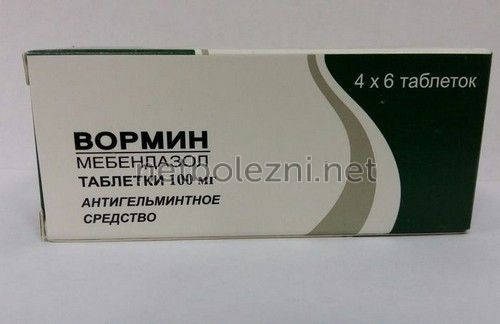
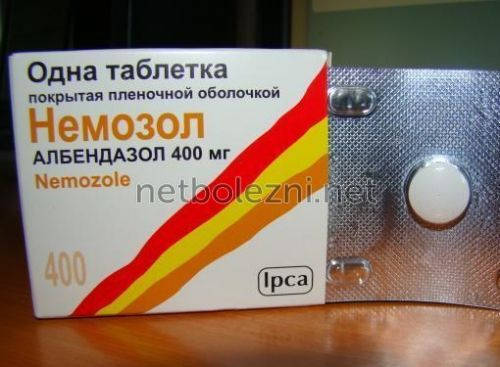
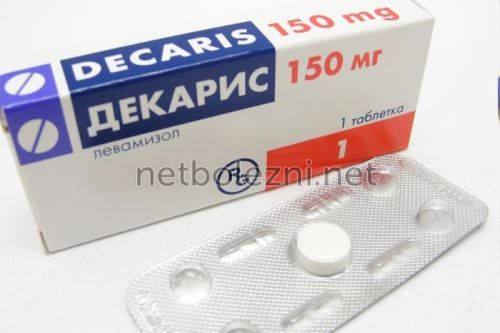
Other known drugs for roundworms are Mebex, Piperazine, Picron, Medamine and others.
Drugs for tapeworms and suckers
The list of such serious parasites is very high, and treatment is always selected on an individual basis. Usually in the hospital specialist calculates the dosage of drugs according to the age, weight, severity of the patient's condition. Often combinations of drugs are used.
It is mandatory for a person to take regular blood tests to assess the composition, because most drugs inhibit the production of red blood cells, leukocytes. Liver enzymes, which can greatly increase, are also evaluated.
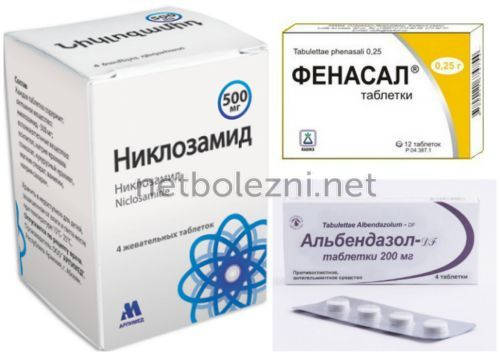
The list of commonly prescribed tapeworm medications is as follows:
Many drugs also help with high infestation of the body with roundworms, as well as for giardiasis, malaria, leishmaniasis. Excellent reputation of these funds in mixed helminth infestations, with localization of parasites outside the intestine (in the lungs, eyes, brain).
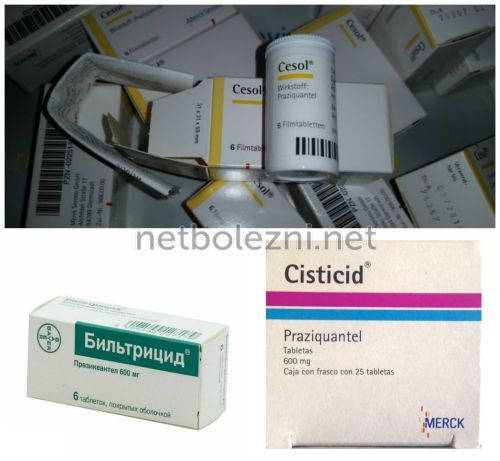
Biltricid, which is available only in hospitals, as well as Cecol, Cysticid, and Azinox, is the most commonly used anti-salvicidal drug. Most of these drugs are available only in municipal pharmacies or are brought in to order.
Deworming
The process of eliminating worms from the cat's body requires not only the choice of a suitable remedy, but also compliance with a strict dosage (information is in the instructions) and the timing of application. Usually an overdose of such drugs is a rare occurrence. However, pregnant cats and very young kittens are at risk. The main signs of overdose: convulsions, foaming at the mouth, limb tremors, respiratory system disorders.
It is possible to remove worms in cats at home. However, if you do it for the first time, or for sure are not sure that the health problems are related specifically to parasites – it is better to seek professional advice from a veterinarian. Unskilled actions can cause the death of the pet. What kind of suspension or tablet is given to a cat to anthelmintics? This answer will be given by a specialist after the type of helminths and the presence or absence of other infections have been identified.
Manufacturers offer different drugs. Some are effective against roundworms, but do not give any results, for example, in the treatment of tapeworms. Broad-spectrum drugs can cause serious side effects.
It is not advisable to buy anthelmintic tablets and cat suspensions from street vendors. Only buy medications from drugstores.
Before worming, you should get rid of fleas. Otherwise you will not be able to cope with the worms, as their eggs can reappear with the insects. How to choose the right anthelmintics:
- Choose products with a non-toxic composition.
- If you buy medicine for kittens, the packaging should be labeled accordingly.
- Preparations for external use are not suitable for pregnant, lactating cats, kittens, as animals may be poisoned.
What pill is given to a cat to anthelmintics
The arsenal of veterinarians includes many different drugs, allowing the pet to get rid of a serious problem. Anthelmintic or anthelmintic drugs are used to remove worms, which are suitable for the treatment of cats of different ages. What form such remedies come in:
The tablets are given to the pet by first kneading them. The resulting powder can be added to water, food or a favorite treat. You can buy foreign remedies or domestic analogues, which do not differ in quality, but cost cheaper.
How to worm a cat properly with a suspension? The liquid drug is given to the cat with a syringe. You can do it in the following way: fix the muzzle in your hand and with a quick movement pour it into the mouth.
The drops are applied to the cat's withers. If the animal refuses the pills, with the infusion of suspension from a syringe dispenser have difficulties – you can try this option, which is no less effective than all the others. However, we remind you: how to properly worm the cat, what drug is better to use – determined by the veterinarian, based on the type of helminths, the age of the animal, its health and other characteristics.
Contraindications for deworming
- The animal is weakened as a result of recent surgery or severe illness.
- The cat is diagnosed with a severe infection that is not related to the presence of endoparasites in its body.
- The animal is extremely emaciated.
- The cat has been diagnosed with serious abnormalities of the liver and urinary system. This is directly related to the excretion pathway of the active substances of anthelmintics.
- Pregnancy and lactation. In this case, deworming is carried out only after prior consultation with a veterinarian (a drug with minimal toxicity may be prescribed, such as Febtal tablets).
- Very severe helminth infestation. Deworming should be carried out necessarily, but under the supervision of a doctor. In such cases, an individual treatment regimen of helminthiasis is prescribed.
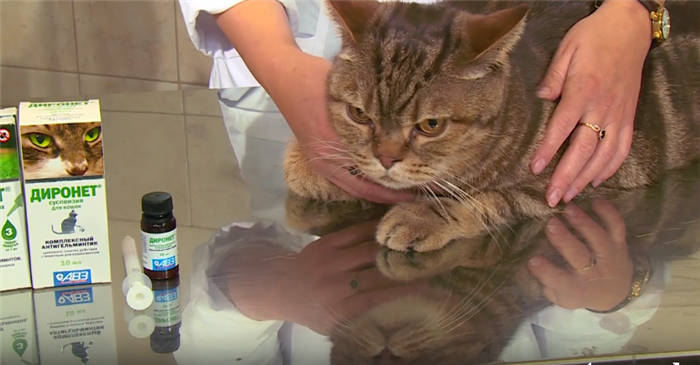
- Selection of a drug according to the spectrum of action. Means can be active against nematodes, cestodes (larvae and/or adult worms), as well as ectoparasites (ticks, fleas, lice). Most medications are now universal.
- Proper selection of the dosage form of the anthelmintic drug. A calm animal can be wormed with tablets or suspensions, for aggressive cats it is convenient to use drops on the withers.
- Calculation of the dose of the drug, based on the weight of the pet.
- Compliance with the deworming plan, if necessary alternating different preparations. For example, in the spring period you can give the young animal a suspension "Febtal combo", and in the fall period to choose in favor of "Dironet".
- Consideration of the individual characteristics of the pet. If the cat shows hypersensitivity to one of the active components of the drug, it is important to immediately contact a specialist for help and selection of another drug.
Anthelminthic drugs AVZ
"Azinox". The active ingredient of the tablets is represented by praziquantel. The drug is active against all stages of development of ribbon parasites.
"Alben C." The active ingredients are albendazole and praziquantel. The pills have proven themselves in the treatment and prevention of nematodoses and cestodoses. The drug is active against adult worms and their larvae.
"Febtal combo". Praziquantel and albendazole are used as active substances. The suspension is active against nematodes and cestodes.
"Febtal. The active substance – fenbendazole, spectrum of action – destruction of round and tapeworms, form of production – tablets.
"Dironet". The active substances are represented by pyrantel, praziquantel, as well as ivermectin. The suspension fights ectoparasites, as well as round and tapeworms.
"Dironet spot-on. The active ingredients are represented by ivermectin and praziquantel. The drug in the form of drops on the withers is effective against ectoparasites (fleas, ticks, worms), as well as all nematodes and cestodes.
"Dironet Junior". The active substance of the suspension is represented by pyrantel, which has a pronounced activity against sexually mature nematodes.
Before using the antihelminthic agent, it is necessary to study the instructions and consult with a specialist.
How to avoid contracting worms
- Routine deworming. Even if there are no obvious signs of worm infestation, it is necessary to carry out a planned deworming, which involves the use of special drugs for the treatment and prevention of worming in cats. It is recommended to use such drugs according to a certain scheme, which will help to protect your pet from negative consequences. Preventive measures are recommended to be carried out simultaneously not only to the cat, but also to other animals living in the same apartment, such as a dog. This will help to avoid reinfection;
- No contact with street animals. Interaction with street dwellers is a direct threat of infection with internal and external parasites for your pet. Rodents are especially dangerous in this regard. It is recommended to keep domestic cats from walking in the yard, or to walk them on a leash. If you cannot avoid contact with stray animals, it is necessary to monitor the condition of the pet and in case of changes in behavior and appearance immediately consult a veterinarian;
- Monitoring the cat's diet. It is recommended to feed the cat quality ready-made cat food from proven manufacturers. If the food consists of natural products, they should be cooked with heat: meat or fish should be boiled or steamed for several minutes. Drinking water is better given in boiled or bottled form;
- Regular cleaning of the house. Helminths lay a huge number of eggs every day, which quickly spread throughout the room. Therefore, after deworming it is necessary to clean the entire apartment with detergents, especially thoroughly treat the litter box and its location. In addition, try to regularly wash pillows, blankets and other things on which your pet often lies. If this measure is neglected, worm eggs can re-enter the pet's body;
- Keeping the bed and litter box clean. To prevent the eggs from spreading, it is recommended to clean the pet's feces as soon as possible after emptying. If you use special filler, the cat litter box should be washed with chlorine-containing products on both the inside and outside. Make sure to wash your hands after each cleaning. In addition, your pet's sleeping area should be cleaned regularly.
Cat Deworming Plan
Before you can perform a routine deworming of your cat, you need to make sure that your pet is healthy. To do this, it is recommended that you visit your veterinarian, who will select medications and a suitable treatment regimen. As a rule, the prevention of worm infestations is carried out every three months. So, one year you can give the animal a suspension "Febtal-Combo", and the next year you can choose in favor of the remedy "Dironet". Particular attention is paid to those pets that frequent the street. The dehelminthization is also done 14-27 days before the mating, 3 weeks before the delivery, and for growing kittens, 3 weeks after that. Antihelminthic drugs are best given in the morning on an empty stomach, which ensures the greatest effectiveness of the treatment.
Suspensions
- Dironet Junior suspension. The main active ingredients are pyrantel and sodium ribonucleate, as well as excipients. A broad-spectrum anthelmintic for kittens. It is used from 3 weeks of age.
- Dironet suspension. The product consists of pyrantel, praziquantel, ivermectin and excipients. The drug has a wide range of nematodocidal and cestodocidal action, active against round and tape helminthes.
- Febtal-Combo" suspension for cats and kittens. The main active substances are praziquantel and albendazole, as well as excipients. The suspension is used for prevention of worms in cats and kittens with nematode infestations (toxocariasis, toxascariasis, unzinariasis, trichocephalesis, ankylostomiasis), cestodes (tenidiasis, dipilidiosis, echinococcosis, difillobotriosis, mesocestoidosis) and mixed nematode-testodesis infestations.
Tablets
- Tablets for cats and dogs "Azinox". The active ingredient of the drug is represented by praziquantel. The remedy has activity against all phases of development of ribbon helminthes.
- Tablets for cats and dogs "Alben C". A complex drug containing praziquantel and albendazole as active substances. It has a wide range of nematodocidal and cestodocidal action on all periods of development of roundworms and tapeworms.
- "Febtal tablets for cats and dogs. It has a single active ingredient fenbendazole. The drug is effective in the treatment and prevention of various nematodoses and cestodoses, can be used in pregnant women.
- Dironet 200" tablets for cats and kittens. Each of them contains pyrantel, praziquantel and ivermectin. The drug is used for the prevention of dirofilariosis, as well as the treatment and prevention of nematodosis and cestodosis.
AVZ worming preparations for kittens
Anthelmintic suspensions
- Dironet Junior suspension. The main active substances are pyrantel and sodium ribonucleate, as well as excipients. The drug is used for the prevention and treatment of various nematode diseases (toxocariasis, toxascariasis, unzinariasis, ankylostomiasis, trichocephaliasis).
- Dironet suspension. The drug contains such active substances as pyrantel, praziquantel, and ivermectin. The suspension is aimed at fighting ectoparasites, as well as round and tapeworms.
Tablets
- Azinox tablets for cats and dogs (from 3 weeks of age). Their main active ingredient is praziquantel. The remedy is active against tapeworm parasites at all stages of development.
- Tablets for cats and dogs "Alben C" (from 3 months). A complex drug, which includes praziquantel and albendazole. It has nematodocidal and cestodocidal action, which are aimed at all phases of development of round and tape helminthes. It is the drug of choice for the treatment of resistant helminth infections.
- Dironet 200" tablets for cats and kittens (from 3 weeks). One tablet contains pyrantel, praziquantel and ivermectin. A wide range of antihelmintic action allows to fight round and tape helminthes.
- "Febtal tablets" for cats and dogs (from 3 weeks). The composition includes a single active ingredient – fenbendazole, which has a broad spectrum of action. The drug is used as the treatment and prevention of various nematodoses and cestodoses as adult forms and larvae and eggs in the gastrointestinal tract and lungs, as well as cestodes. It has the least contraindications and is acceptable for use in pregnant women.
Drops on the withers
Before using an antihelminthic agent, it is necessary to study the instructions and consult with a specialist.
When should the first deworming be done?
The first worming of the cat is necessary not earlier than at the age of three weeks. Before the procedure, the pet must be shown to the veterinarian, who will prescribe a drug and a scheme of taking drugs for prevention.
Since antihelminthics have a certain degree of toxicity, only completely healthy cats are allowed to undergo the procedure. Also during treatment the cat must have constant access to clean water to reduce toxins.
This is why you need to rid pregnant and lactating cats of worms with special care. Experts recommend deworming cats 10 days before mating. This will protect the animals and their offspring.
In the first month of lactation, you should refrain from taking medication. If the kittens or their mother are infected with helminthiasis, they are separated for the period of treatment.
What happens if you do not get rid of worms?
Parasites pose a real danger to cats. In the animal's body, they multiply rapidly, absorb nutrients and affect internal organs.
Before the procedure, it is necessary to carefully observe the animal's well-being, as there are a number of situations that are contraindications.
- An infection has been detected that is not related to the presence of worms;
- the body is weakened after an illness or surgery;
- serious problems with the urinary system and liver. This is a very important point, since the work of these organs directly affects the quality of excretion of toxic substances from the animal's body;
- there is depletion of the body;
- pregnancy and lactation. Do not give yourself antihelminthic drugs to a nursing pet or one that is carrying the offspring. It is necessary to consult a specialist, who may be able to select a drug with a low degree of toxicity.
Also in the case of severe stage of helminth infections, deworming should be carried out under the close supervision of a veterinarian.
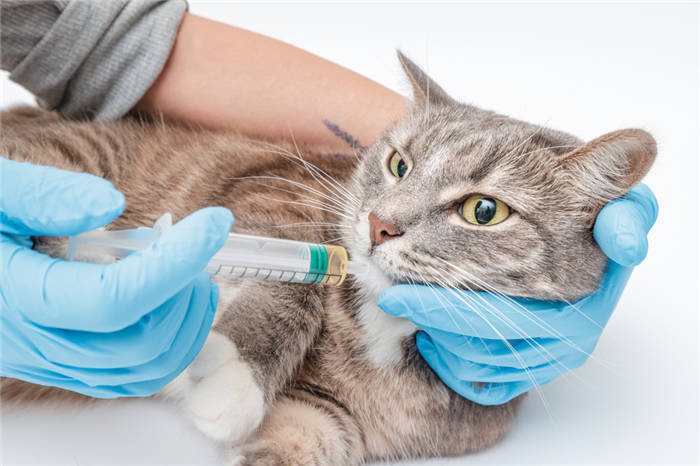
Cat diarrhea after worming
People often hear that antiparasitic drugs are the cause of cat diarrhea, poisoning and other ailments up to and including death. Naturally, each drug, to some extent toxic, but the main problems arise not because of the chemical component of the product, and the wrong dosage, or improperly chosen means. Regarding the diarrhea in cats after anthelmintics – this is a separate story. As a rule, diarrhea provoke not drugs, and dead, decaying parasites. And for the cat diarrhea in this case is a natural way to cleanse the intestines of dead worms.
You can also ask the in-house veterinarian on our website, who will answer them in no time in the comment box below.
Can deworming harm
Complications can occur if the dosage is incorrect. Insufficient amounts of the substance will keep the worms alive – they will continue to multiply and poison the body, which will affect the deterioration of symptoms.
When overdosing or worming kittens with adult preparations, vomiting and diarrhea may occur. Gastrointestinal distress severely dehydrates the body, so animals will need help from a veterinarian. Lingering diarrhea in adult animals is safe for no more than 2 days, and in kittens only 6-12 hours.
With hypersensitivity to the active ingredients, itching or other allergic reactions, including anaphylactic shock, may occur. Other possible complications include:
If the helminthiasis is severe and the body is excessively weakened, taking anthelmintics can lead to multiple organ failure syndrome. This deadly pathology leads to rapid failure of all internal organs and systems. It is impossible to save an animal with such a diagnosis, so veterinarians recommend a full diagnosis before anthelmintics in severe cases.
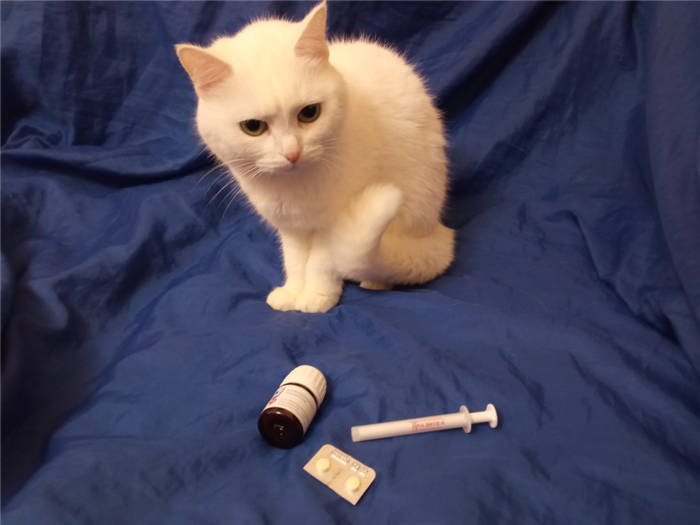
Symptoms, causes and prevention of worm infection
Helminthiasis is easy to recognize by the worms that appeared in the feces. The only problem is that it is almost impossible to notice larvae and eggs because of their small size. Waiting for them to turn into an adult is quite dangerous. In the early stages it's advisable to pay attention to the following symptoms:
Because of the similarity with the symptomatology of other diseases, it is unsafe to start treatment before diagnosis. It is better to minimize contact with a sick cat temporarily, as some helminths are transmitted to humans.
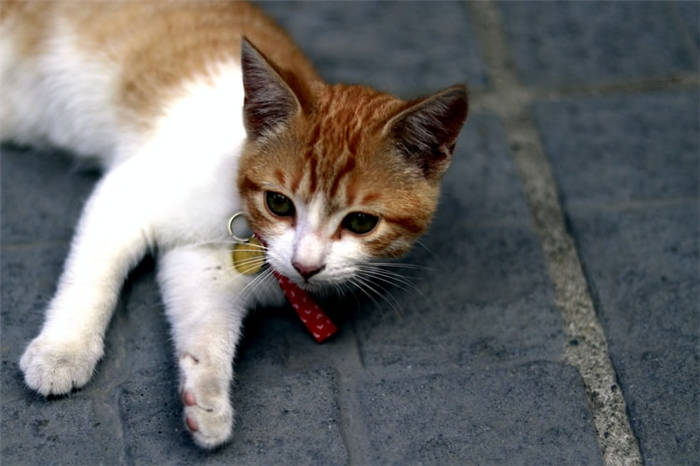
Infection with parasites occurs through direct contact with other animals, eating raw fish or meat. The host runs the risk of bringing worm eggs on their shoes every day, so the only way to protect themselves is to following preventative guidelines:
Eliminate raw foods from the diet. The main source of infection is river fish. It is dangerous not only with helminths, but also with bones. When feeding meat, be sure to freeze it in the freezer before cooking. In this case, the parasites will die under the double effect of too low and too high temperatures.
Pay special attention to the quality of commercial feed. Don't buy food sold loose: parasites breed quickly in open packages.
Try not to skip the schedule of anti-parasitic treatments and have regular check-ups at the veterinary clinic. If you break the habit of taking antihelminthics, be sure to consult your veterinarian for further action.
Severe worm infestation can be fatal, so be vigilant and do not skimp on anthelmintic medications. Prevent possible routes of infection and follow the recommendations for preventive deworming.
The article is for informational purposes. Contact your veterinarian!






